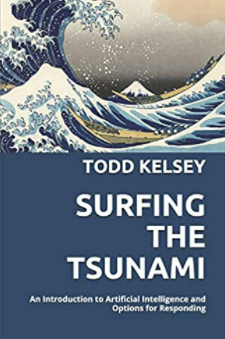Week 7 - MBA 6101 - Artificial Intelligence and Machine Learning Impacts on the Pharmaceutical Industry
Health IT Analytics posted the article ChatGPT Passes US Medical Licensing Exam (USMLE) Without Clinician Input in February of this year. With this news, questions arose in my mind about how Artificial Intelligence (AI) and Machine Learning (ML) may impact the job market of the pharmaceutical industry. While the artificial intelligence tool scored only 60% accuracy on the exam, it does beg the question will clinicians soon no longer be required for safety data review and analysis in clinical trials or pharmacovigilance?
In my own experience, medical decisions surrounding pharmaceuticals requires the ability to critically think about the reported data and understand the medical impact that may be had. This can be made difficult by poor data entry by the primary investigator delivering medical care the the subjects on the clinical trial. It can also require extensive knowledge of the pharmacokinetics of the drug under study. For this reason, I do not think we all need to start looking for new jobs. However, I do think it is imperative that we think about the strategic implications of these technology tools on data analytics.
In Surfing the Tsunami: An Introduction to Artificial Intelligence and Options for Responding, Todd Kelsey describes the three approaches one can take with AI as adapting, adopting, or becoming adept with AI. The option to adapt being the minimal approach of understanding there will be impact of AI and being aware of what that impact could be. Adopting AI is the next tier, where a person or company may decide to implement some available technologies to their practices. This is better than just being aware of the current technology options out there, but still leaves gaps as you are expecting existing technology to fit with your processes. The idea of becoming adept with AI means that you take on a role, either formally or informally, of the data scientist to develop different technology tools in your business area to leverage AI and ML to improve your processes.
For me, becoming adept is not just optimal but necessary. Understanding that AI and ML is moving faster and faster every day, it is imperative that we understand what these technologies are capable of and to start leveraging them now. Otherwise, the pharmaceutical industry will move on without its data reviewers and analysts, potentially to the detriment of the patient or company. This is why it is important to understand the limitations of AI and ML. Since ChatGPT barely passed the USMLE on it's own, this means that clinicians are still providing valuable insight that AI and ML are not yet capable of. Using intellectual curiosity and critical thinking, we should leverage data sciences programming where we can but remember that clinicians should be involved in developing that programming to provide their unique insight.



Comments
Post a Comment